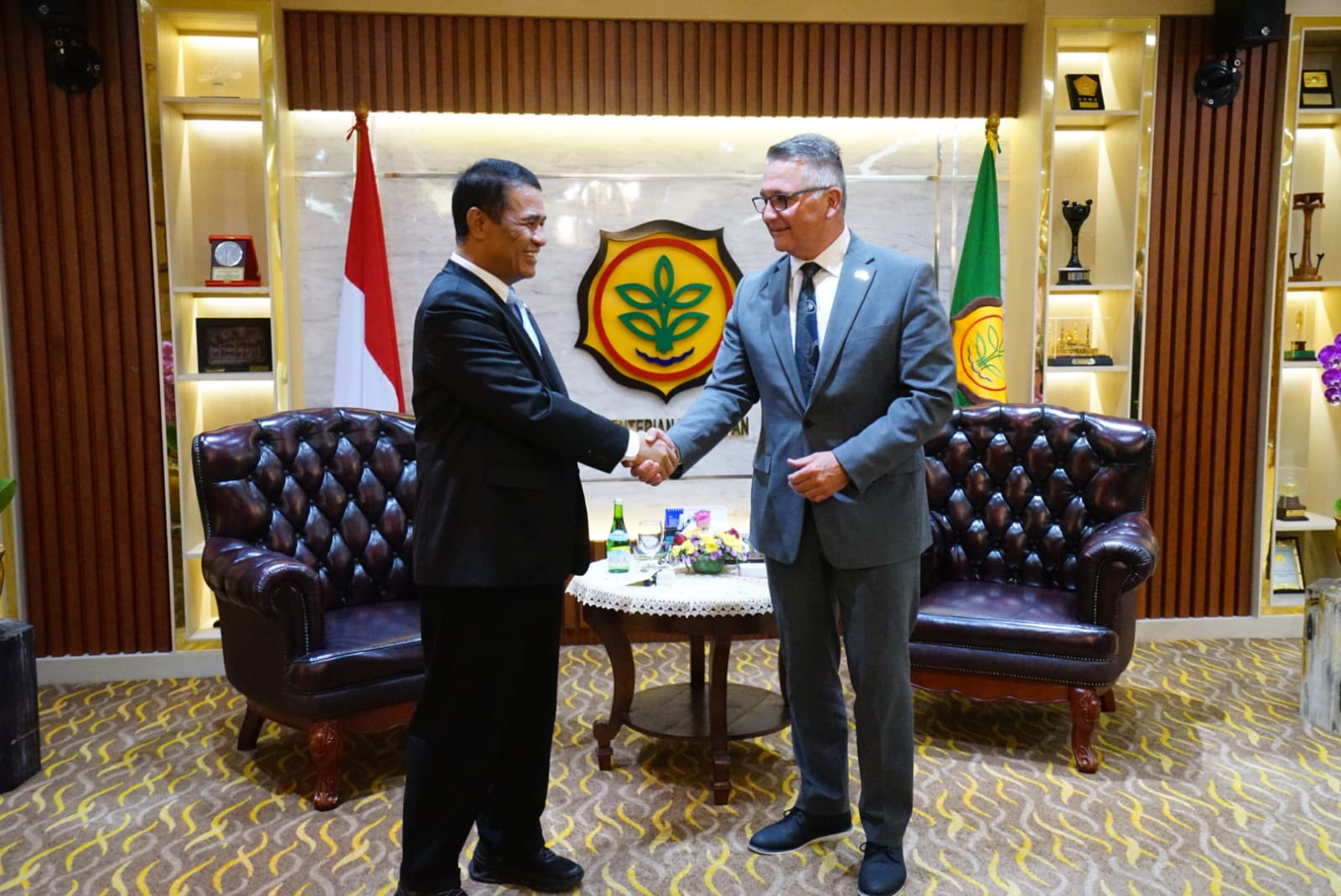Indonesia is strengthening its economic ties with Canada through enhanced collaboration in agriculture and agribusiness, with a focus on crude palm oil (CPO) exports and livestock development. The bilateral cooperation reflects both countries' commitment to expanding Indonesia Canada trade while supporting sustainable agriculture and food security.
The collaboration is expected to create new opportunities for Indonesia’s palm oil producers, livestock farmers, and agritech innovators, while also opening doors for Canadian expertise and investment in advanced farming practices.
Why Indonesia Canada Trade Matters Now
The Indonesia Canada trade partnership is strategically significant for both nations. Canada is one of the world’s leading agricultural exporters and technology innovators, while Indonesia is a major global supplier of palm oil and has a rapidly growing livestock industry.
For Indonesia, Canada represents a high-value market with growing demand for sustainable food products and renewable raw materials. Expanding CPO exports to Canada could increase Indonesia’s market diversification and reduce reliance on traditional buyers in Asia and Europe.
From Canada’s perspective, Indonesia offers opportunities to export agricultural technology, improve livestock genetics, and invest in modern food processing industries. The partnership also aligns with Canada’s Indo-Pacific Strategy, which prioritizes closer economic and environmental collaboration with Southeast Asian economies.
CPO Exports Drive New Trade Momentum
One of the central themes in recent Indonesia Canada trade discussions is the expansion of crude palm oil exports. Palm oil remains one of Indonesia’s top export commodities, valued for its versatility in food processing, bioenergy, and consumer products.
Despite facing challenges related to sustainability and deforestation concerns, Indonesia has taken significant steps to improve its palm oil governance. These include certification schemes such as the Indonesian Sustainable Palm Oil (ISPO) standard and efforts to promote traceability in supply chains.
Canada’s interest in Indonesian CPO reflects its growing demand for renewable raw materials and plant-based ingredients. The two countries are expected to explore tariff reductions, logistics cooperation, and sustainability frameworks to make palm oil trade more competitive and environmentally responsible.
For Indonesian palm oil producers, increased access to the Canadian market could help diversify export destinations and reduce vulnerability to market fluctuations in Europe, where stricter environmental regulations have affected palm oil imports.
Livestock Development Collaboration
Another key area of Indonesia Canada trade is livestock development. Indonesia’s livestock industry, particularly cattle and poultry, has significant growth potential but faces challenges such as limited breeding capacity, disease management, and feed efficiency.
Canada is globally recognized for its livestock genetics, veterinary expertise, and advanced feed production systems. By leveraging Canadian knowledge and technology, Indonesia aims to improve livestock productivity, food safety, and overall supply chain efficiency.
The partnership includes potential cooperation in breeding programs, veterinary research, and investment in modern slaughterhouses and cold chain logistics. These efforts are designed to strengthen domestic meat production, reduce imports, and enhance food security for Indonesia’s growing population.
Investment And Technology Transfer Opportunities
The growing scope of Indonesia Canada trade also highlights opportunities for investment and technology transfer. Canadian agritech companies are exploring joint ventures with Indonesian partners to introduce precision farming, digital agriculture platforms, and climate-smart solutions.
For Indonesia, adopting Canadian technology could accelerate productivity growth, reduce post-harvest losses, and support sustainable resource management. In return, Canadian firms gain access to a dynamic and fast-growing market, supported by Indonesia’s government initiatives to modernize agriculture.
Technology collaboration could also extend to renewable energy projects using agricultural waste, supporting both countries' commitments to green energy transition and reducing carbon emissions.
Challenges And Policy Considerations
While Indonesia Canada trade shows strong potential, several challenges need to be addressed to maximize its benefits:
- Tariff And Non-Tariff Barriers: Trade negotiations must address tariffs and regulatory differences that could limit market access for CPO and livestock products.
- Sustainability Standards: Ensuring compliance with strict environmental and social standards, particularly in the palm oil sector, is essential for long-term acceptance in Canada.
- Logistics Infrastructure: Efficient transportation and cold chain logistics are necessary to support perishable livestock exports and maintain competitiveness.
- Knowledge Transfer: Effective training and capacity building are required to ensure technology adoption benefits local farmers and industries.
Both governments are expected to engage in ongoing dialogue to harmonize standards, improve trade facilitation, and support private-sector partnerships.
Economic And Social Impact
Expanding Indonesia Canada trade is expected to deliver significant economic and social benefits:
- Job Creation: Increased palm oil exports and livestock industry growth will create employment opportunities in rural areas.
- Market Diversification: Reducing reliance on a limited number of export destinations strengthens Indonesia’s economic resilience.
- Food Security: Collaboration on livestock development enhances domestic meat production and reduces dependency on imports.
- Sustainable Development: By prioritizing sustainability and technology, the partnership aligns with global climate goals and responsible resource management.
These impacts support Indonesia’s long-term vision of becoming an advanced agricultural hub in Southeast Asia and strengthen Canada’s role as a trusted partner in regional food security.
Outlook For Indonesia Canada Trade
The future of Indonesia Canada trade looks promising as both countries focus on mutually beneficial areas of cooperation. Upcoming trade missions, agricultural expos, and bilateral negotiations are expected to further strengthen partnerships in palm oil, livestock, and agritech solutions.
With clear synergies in agricultural strengths and sustainability goals, Indonesia and Canada have an opportunity to build a comprehensive economic relationship that supports innovation, competitiveness, and environmental stewardship.
Read More






 Wednesday, 04-02-26
Wednesday, 04-02-26







